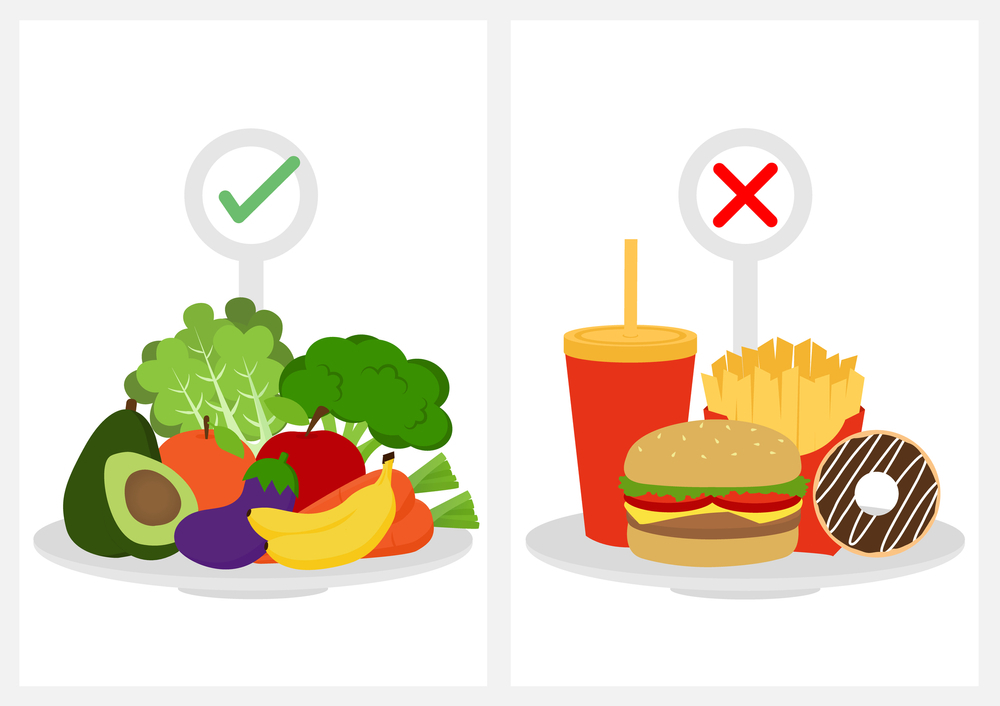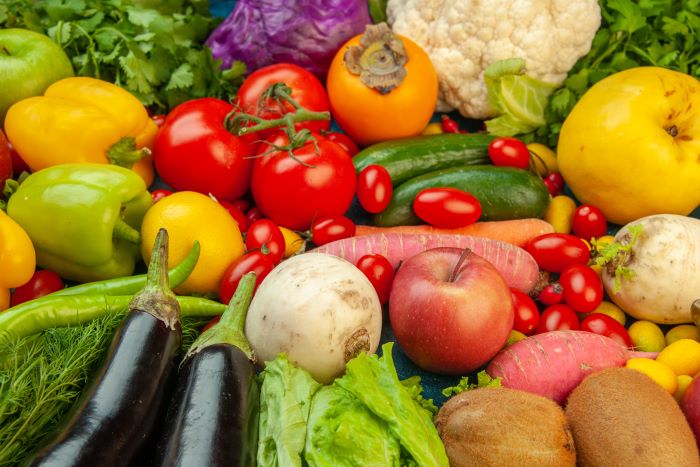
We will be discussing some Ayurvedic tips for Overall well-being. The importance of Routine, meal -timing, and well-balanced diet, digestion-enhancing practices, the importance of hydration and digestion, the importance of balanced nutritional diet, agni balancing, mindful eating and, Cleansing and detoxification process. We will also discuss how should we eat our food, what should we eat and when should we eat. I hope You enjoy reading the Ayurvedic Tips and gain maximum benefit from it.
1. Understanding the Rhythms of Digestion
Importance of meal timing aligned with the sun’s cycle

Do you know that the time of your meals can affect your health and well-being? Your body has a natural cycle of producing enzymes that help you digest the food you eat. These enzymes are linked to the sun’s movement and are strongest when the sun is at its highest point in the sky, which is around noon. That’s why you should have your main meal at this time when your digestion is at its best. This will help your body get the most nutrients from the food and make you feel full and satisfied for longer. This will also help you maintain your weight and hormone balance. On the other hand, you should have a light and early dinner, because your digestion slows down as the sun sets. Eating too much or too late can cause indigestion, sleep problems, and toxin accumulation in your body. The next day, you will feel tired and sluggish. To avoid this, try to eat at least three hours before bedtime, ideally between 5 and 7 p.m. in the evening.
2. Enhancing Hydration with Herbs and Spices
Ayurvedic approach to staying hydrated

Water is vital for good digestion, toxin removal, immunity and skin health. When you add herbs and spices to your water, you make it even more powerful and beneficial. Depending on your body type, you can use different herbs and spices to make your water more suitable for you.
- For kapha types: Add a couple of thin slices of fresh ginger root, 2 basil leaves, 2 whole cloves, 1/2 teaspoon of whole cumin seeds and 2 pinches of licorice powder to a thermos of boiled water. Sip it hot, during and after meals.
- For pitta types: Add 2 pinches of Indian sarsaparilla powder, 1/4 teaspoon of cumin seeds, 2 pinches of licorice powder, 1/2 teaspoon of fennel seeds and 1/2 teaspoon of coriander seeds to a thermos of boiled water. Drink it at body temperature throughout the day, alternating with plain boiled water.
- For Vata types: Add 1/2 teaspoon of whole cumin seeds, 1/2 teaspoon of whole coriander seeds, 1/2 teaspoon of fennel seeds, 3 pinches of ashwagandha root powder, and 1 pinch of whole root licorice powder to a thermos of boiled water. Drink it warm.
These are some of the important Ayurvedic Tips regarding Hydration.
3. Consistent Exercise Routine for Digestive Health

You should also exercise every day as your body loves routine. If you exercise at fifty percent capacity at the same time every day, eat at the same time, and sleep at the same time, your body will reward you with better digestion, better sleep, and better immunity. Yoga, walking, cycling, dancing, and swimming are all good choices for exercise. You can tell if you are exercising more than fifty percent capacity and going beyond your limit if you start sweating on your nose, forehead, or under the arms. Another sign is if you can’t breathe through your nose anymore. Breathing through your nose is recommended for Ayurvedic exercise. If you need to breathe through your mouth, it’s time to slow down or stop. If you follow this guideline, you will always feel energized by exercise instead of exhausted. Every day, you will find that your capacity increases and that you can exercise more intensely or for longer. You will be able to handle more exercise without ever straining yourself.
4. Eating Mindfully for Better Digestion
The next tip among the Ayurvedic Tips is Eating healthy is not only about what you eat but also how you eat. You should eat in a calm, pleasant, and positive environment, and avoid eating when you are angry, stressed, or distracted. This will help your digestion and prevent bloating, gas, and toxin build-up in your gut. You should also avoid talking too much, watching TV, or reading while eating, as these can distract you from the taste, texture, and smell of the food. Eating is a sacred act that nourishes your body and mind. You should respect it and enjoy it fully, mindful eating should be practiced in daily life.
5. Hydration and Digestion
Water consumption According to Ayurveda
In the Ayurvedic Tips, another thing to consider is how much water you drink with your meals. While it is important to stay hydrated and drink between 1-2 litres of water per day, you should not drink too much water before or after your meals, as this can dilute your digestive enzymes and make it harder for your body to break down the food. However, it is good to sip small amounts of hot water with your meals, as this can aid your digestion. You can also drink a small cup of herbal tea after your meals to enhance your digestion. Some of the best herbs for digestion are ginger, lemon, fennel seeds, and mint leaves. You can make your own tea by adding these herbs to hot water and letting them steep for a few minutes.

The impact of cold drinks on digestion
If you want to improve your digestion, you should also pay attention to the temperature of your drinks and foods. Ayurveda advises against drinking cold drinks or eating ice-cold foods, especially at meals. This is like pouring cold water on a fire. Cold drinks and foods can put out your digestive fire, which is called agni in Ayurveda. Agni is related to the sun, and it is strongest when the sun is high in the sky. When you drink cold drinks or eat cold foods, you weaken your agni and make it harder for your body to digest the food. This can cause stomach cramps, bloating, and general discomfort in your stomach area. If you have a pitta imbalance, you can drink cool drinks between meals, but not cold or frozen ones. Cold or frozen foods can also overstimulate your agni and create more heat and imbalance in your body. Instead, try drinking slightly cool drinks made with rose water, or milk blended with dates or fresh mangos.
Things to Avoid Drinking

You should also avoid drinking caffeine, alcohol, and carbonated soft drinks, as these can harm your digestion and dehydrate your body. Instead, drink more water, which is the most basic and essential drink for life. Water helps to flush out toxins from your body and hydrate your cells. You can make your water more healing by boiling it and cooling it, or adding herbs and spices that suit your constitution or correct a specific imbalance. You can also drink a cup of warm milk before bed, with a spoonful of ghee, a pinch of ginger, a pinch of cardamom, and a pinch of nutmeg. This will help you sleep better.
6. Balancing Nutritional Intake
Foods to avoid for improved digestion

Another thing among the Ayurvedic Tips is that you should avoid sugar, fast-food, Fried-foods, coffee, tea, alcohol, and red meat, as these can interfere with your digestion, leach nutrients and water from your body, or block the uptake of nutrients from food. Sugar is especially bad for your digestion, as it feeds the bad bacteria in your gut and causes them to multiply. This leads to candida, bloating, gas, and indigestion. You should also keep in mind that eating too much of anything is harmful.
Agni & Significance of the six tastes in meals

One way to enhance your digestion is to stimulate your agni before you start eating. If you have weak agni, you may feel tired after eating. Ayurveda recommends eating a one-inch piece of fresh ginger with a few drops of lemon juice and a few pinches of salt on it before a full meal. This will activate your salivary glands and produce the necessary enzymes for digesting the food. This will also help your body absorb the nutrients from the food more easily.
Balancing your Agni is one of the key principles of Ayurvedic medicine. You can compare your agni to a fire that cooks your food. If the fire is too low, it will take too long to cook the food. If the fire is too high, it will burn the food. If you put a huge log on a low fire, it will put it out. Your agni should be balanced so that you can digest your meals efficiently and smoothly.
Another way to balance your agni is to include the six tastes of bitter, sweet, pungent, astringent, sour, and salty in each main meal. This will ensure that you get all the nutritional requirements of your body and that you don’t feel the need to snack or overeat later. Follow these Ayurvedic Tips to keep your digestive fire on.
7. Starting the Day Right

If you want to start your day with a healthy breakfast, you should try having a stewed apple and raisins. This light, warm, and nourishing dish breaks the fast of the night gently. Your digestion needs warm, nourishing foods in the morning to wake it up, but not too much. Your digestive fire, or agni, is just waking up, and it will be at its strongest when the sun is high in the sky, at noon. That’s when you can eat heavier proteins and larger amounts of food. A stewed apple also helps your elimination system, because it is easy to digest and has a lot of fiber. It also has vitamins, trace minerals, and antioxidants. This is also good for weight loss, because it is light on your digestion and adds nutrients rather than empty calories. This helps burn body fat.
8. Listening to Your Body
Listen to your body and eat only when you are hungry. Sometimes, you may feel like you need something to eat, but what you really need is more liquid. Try to pay attention to your body’s signals. Sometimes, your body may need smaller, easily digestible soups and fruit/vegetable juices rather than a full meal, to get energy and vitality.
9. Chewing, Portion Control, and Walking

Among the Ayurvedic Tips, Another thing you should do is eat slowly and chew your food well. Many digestive enzymes come from your salivary glands, and they are stimulated by the movement of your jaw. Your food should be like soup when it enters your stomach, because your stomach has no teeth to chew it for you.
Wait for five minutes before taking seconds or a dessert after a meal. This gives your body time to register fullness and tell you if it needs more. You should leave the table feeling light, refreshed, and energetic. If you feel heavy and tired after eating, this means that you have eaten too much or that the food you ate was not nutritious. Allow five to ten minutes before leaving the table and then take a short walk for ten to fifteen minutes to help your digestion.
10. Choosing and Preparing Nourishing Foods
It is important to follow some Ayurvedic tips when it comes to choosing and preparing your meals. Choose your food carefully. Fresh, organic food is best and you should avoid refined, processed food as much as possible. Colour, taste, and presentation are as important as nutritional content because they affect how much pleasure you get from eating. The more pleasure you get from eating, the more enzymes you produce for proper digestion.
If you eat raw foods, you should eat them at the beginning of the meal and in small quantities (less than one third of the total meal content). While raw food has a lot of vitamins and enzymes, it is harder for your body to break it down than cooked food. This can cause severe digestive problems, especially if your body is already stressed and your digestion is not working well.
11. Cooking & Eating

The best way to cook vegetables is to lightly steam them, as this preserves their enzymes and nutrients. According to Ayurveda, sweet fruit desserts should be eaten at the beginning of a meal rather than at the end. Sweet tastes satisfy hunger and quench appetite and therefore reduce the need for large amounts of food. Fruit that stays in your stomach behind the main meal waiting to be digested (up to six hours) can ferment and produce a lot of gas and bloating. This destroys the good digestive flora and encourages the growth of bad digestive bacteria.
Make sure that you get enough essential fatty acids (omega 3,6,9) in your diet. These can help lower cholesterol, high blood pressure, diabetes and obesity. You can find them in fresh deep-sea fish such as mackerel, sardines, and salmon and in many freshly-ground nuts and seeds. However, the best way to ensure that you get enough essential fatty acids is by adding oil to your food. Olive oil is good, but flax oil, pumpkin oil and borage oil are better. The best of all is a specially formulated blend called ‘Udo’s oil’ which has all the essential fatty acids or omegas in their ideal ratios for optimal health and nutrition.
Embracing fresh, organic, and colorful foods

Fruits and vegetables are also important for your digestion, as they have a lot of phytonutrients, and a variety of colours, tastes and textures. Ayurveda has always recommended eating a lot of fruits and vegetables, not only for their nutritional value, but also because they are natural internal cleansers. Modern research agrees that fruits and vegetables are powerful foods that can prevent diseases – in fact, it is now recommended that you eat nine servings of antioxidant-rich fruits and vegetables a day to prevent cancer and other diseases caused by free radicals.
The impact of processed foods on health

One of the most important Ayurvedic Tips is to avoid Processed foods. You should eat foods that are natural and intelligent. Most of the products sold in supermarkets have genetically modified ingredients and many of the chemicals and pesticides used in growing foods have been linked to many diseases. Processed foods, genetically modified foods, and foods with additives or artificial preservatives are not alive with the intelligence of nature. According to Ayurveda, our body is a reflection of the laws of the universe, and the more we align our lives with nature, the healthier we will be. Our digestion is designed to process foods that are closest to nature – whole grains, pulses, fruits, and vegetables. Help your digestion function well by choosing organic foods whenever possible – your health is worth the extra cost.
Process of Cooking

Cook your food properly. The purpose of ayurvedic cooking is to combine the intelligence of the spices, the intelligence of vegetables, and the intelligence of the fat – all the different enzymes and energies – in a way that is not confusing for your body’s intelligence to break down and incorporate. Ayurvedic cooking methods are gentle on your digestion. You can prepare Ayurvedic vegetables in two ways. The first way is to steam the vegetables and then add the spices that have been sautéed in ghee, coconut oil or olive oil. The second way is to sauté the spices in ghee, coconut oil or olive oil and then add the vegetables and sauté for a few minutes. Cover and cook at low temperature. If you are making a curry (vegetables with sauce), add a small amount of water to finish cooking the vegetables.
12. Internal Cleansing and Detoxification

Your digestion needs a break from time to time. According to Ayurveda, the accumulation of ama or toxins in your body is the main cause of most diseases. That’s why Ayurveda suggests that you do internal cleansing at the start of each season for better health. During internal cleansing, you should eat light but nourishing foods like mung bean soup or khicharee and drink plenty of warm water or ‘Detox Tea’ throughout the day. Fresh, sweet, juicy fruits are also great cleansers. Periodic internal cleansing removes the junk from inside your body and improves your digestion for the next season.
You can also use Triphala to help your elimination and purification. Triphala is a herbal formula that helps strengthen and purify your digestive/immune system. It is best taken in the late evening. Another herbal paste that is good for this purpose is Chywanaprash.
These were some of the important Ayurvedic tips that you can include in your daily lives. Follow these Ayurvedic Tips and see how your life changes for better.
Summary of Ayurvedic Tips
- The time of your meals can affect your health and well-being. You should eat your main meal at noon, when your digestion is at its best, and have a light and early dinner because your digestion slows down as the sun sets.
- Ayurvedic approach to staying hydrated includes adding herbs and spices to your water to make it even more powerful and beneficial.
- Pitta types should drink boiled water with sarsaparilla powder, cumin seeds, licorice powder, fennel seeds and coriander seeds.
- Consistent exercise routine for digestive health includes fifty percent capacity exercise at the same time every day, eating at the same time every day, and sleeping at the same time every night. You can tell if you are exercising more than fifty percent capacity by sweating or not breathing through your nose.
- Eating mindfully helps your digestion and prevents bloating, gas, and toxin build-up in your gut. You should also avoid talking too much, watching TV, or reading while eating.
- According to Ayurveda, you should not drink too much water with your meals, but sip small amounts of hot water with them. You can also drink a small cup of herbal tea after your meals to enhance your digestion.
- Ayurveda advises against drinking cold drinks and eating ice cold foods at meals, as this weakens your digestive fire, which can cause stomach cramps, bloating, and general discomfort in your stomach area.
- If you have a pitta imbalance, drink slightly cool drinks made with rose water or milk blended with dates or fresh mangos.
- You should avoid drinking caffeine, alcohol, and carbonated soft drinks, and instead drink more water, which helps to flush out toxins and hydrate your cells. You can also drink warm milk before bed to help you sleep better.
- For improved digestion, you should avoid sugar, fast-food, Fried-foods, coffee, tea, alcohol, and red meat. These foods can leach nutrients and water from your body or block the uptake of nutrients from food.
- Ayurveda recommends eating a piece of fresh ginger with a few drops of lemon juice and a few pinches of salt before a full meal to enhance digestion and absorb nutrients from the food more easily.
- Balancing your agni is one of the key principles of Ayurvedic medicine. Include the six tastes of bitter, sweet, pungent, astringent, sour, and salty in each main meal to ensure that you get all the nutritional requirements of your body.
- If you want to start your day with a healthy breakfast, try having a stewed apple and raisins. It is light on your digestion, has a lot of fibre, and helps burn body fat.
- Listen to your body and eat only when you are hungry. Sometimes, you may need to drink more liquids instead of eating a full meal.
- You should eat slowly and chew your food well, wait five minutes before taking seconds or a dessert after a meal, and leave the table feeling light, refreshed, and energetic.
- Choose your food carefully, avoid refined, processed food as much as possible, and enjoy your meals. If you eat raw foods, eat them at the beginning of the meal and in small quantities.
- Ayurveda recommends eating sweet fruit desserts at the beginning of a meal rather than at the end, as this preserves their enzymes and nutrients and reduces the need for large amounts of food.
- Make sure that you get enough essential fatty acids in your diet by adding oil to your food. This blend of oils has all the essential fatty acids in their ideal ratios for optimal health and nutrition.
- Ayurveda recommends eating a lot of fruits and vegetables, as they are natural internal cleansers, and contain a lot of phyto-nutrients. Fruits and vegetables are also powerful foods that can prevent diseases.
- The impact of processed foods on health is significant. You should eat foods that are natural and intelligent, and avoid foods that are genetically modified or contain additives or artificial preservatives.
- Ayurvedic cooking methods are gentle on your digestion. You can prepare vegetables in two ways: steam them or sauté them with spices in ghee, coconut oil or olive oil.
- Ayurveda suggests that you do internal cleansing at the start of each season for better health. Eat light but nourishing foods like mung bean soup and drink plenty of warm water throughout the day.

